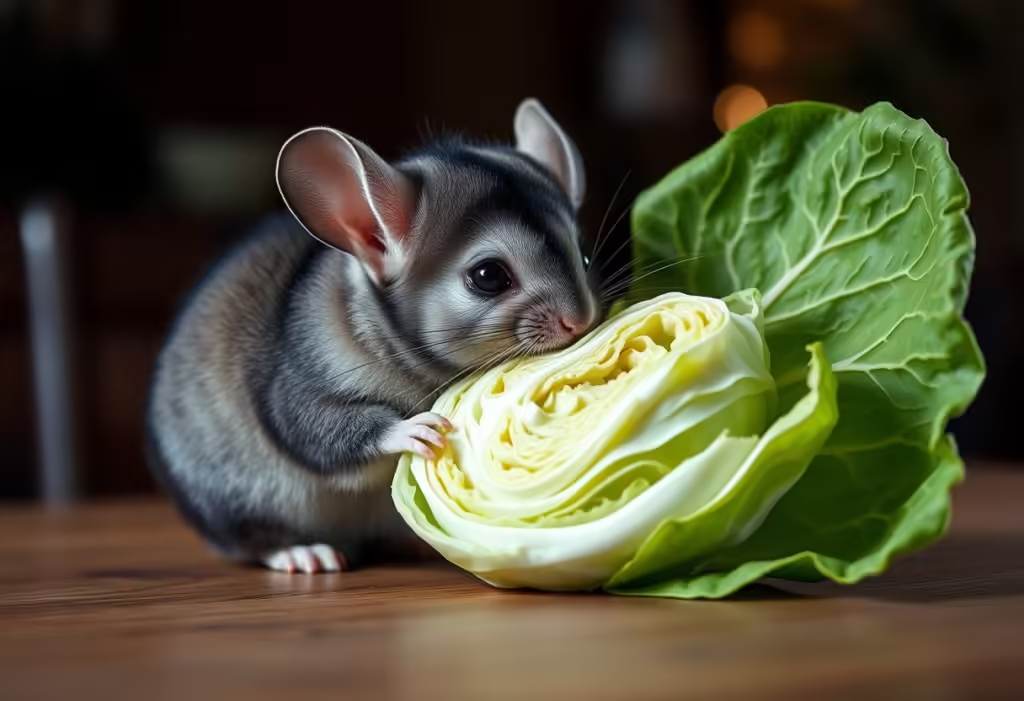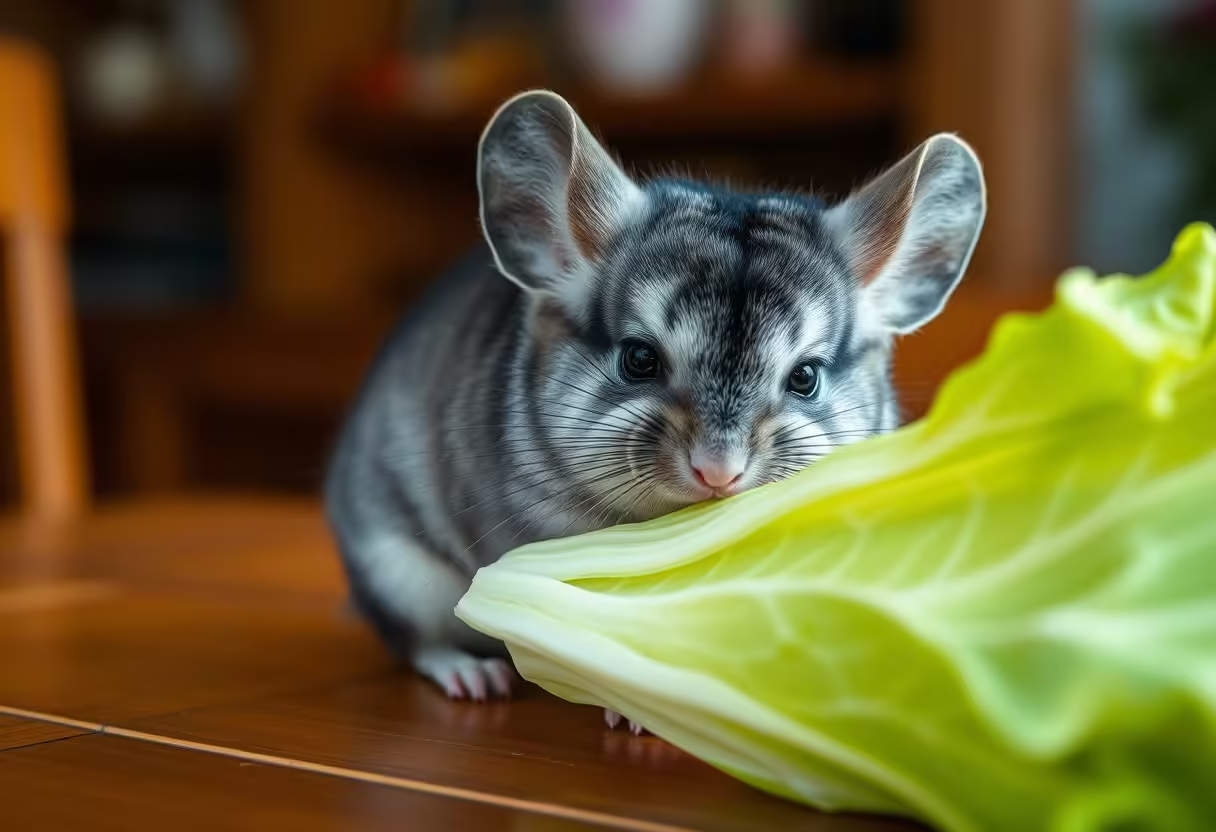No, chinchillas should not eat cabbage. Cabbage is poisonous to chinchillas and can cause severe digestive issues like gas, bloat, and discomfort. This is due to their sensitive digestive systems, which are not suited to handle moisture-rich or fibrous vegetables like cabbage. To keep your chinchilla safe, avoid feeding cabbage and consult with an exotic vet before introducing any new foods into their diet.

Key Takeaways
- Cabbage is poisonous to chinchillas. It can cause serious digestive problems like gas and bloat and should never be fed to them.
- Chinchillas are adapted to arid environments and cannot properly process moisture-rich foods like cabbage.
- Consult an exotic vet before introducing any new foods into your chinchilla’s diet to ensure their safety and health.
Why Cabbage is Unsafe for Chinchillas
Moisture Content and Digestive Issues
Chinchillas have evolved in dry, arid regions where they consume high-fiber, low-moisture foods such as hay and grasses. Foods with high water content, like cabbage, disrupt their delicate digestive systems. Cabbage can lead to:
- Gas and Bloat: A potentially life-threatening condition caused by an overproduction of gas in the stomach.
- Diarrhea: Excess water content can upset the balance of their gut microbiome, leading to loose stools and dehydration.
Other Risks
Cabbage belongs to the Brassica family, which contains compounds that may interfere with thyroid function. These compounds, combined with the moisture and fiber content, make cabbage dangerous for chinchillas even in small amounts.
What Should Chinchillas Eat Instead?
A healthy chinchilla diet consists of:
- Hay: High-quality timothy hay or orchard grass should make up 75-80% of their diet to ensure proper digestion and dental health.
- Pellets: A small daily portion of chinchilla-specific pellets to provide essential nutrients.
- Occasional Treats: Dried herbs or chinchilla-safe leafy greens, such as dandelion greens or parsley, can be given sparingly.
Avoid These Poisonous Foods
In addition to cabbage, the following foods are poisonous to chinchillas and should never be fed:
| Poisonous Foods | Reason for Toxicity |
|---|---|
| Cabbage | Gas, bloat, high water content |
| Broccoli | Causes gas and bloating |
| Rhubarb and Rhubarb Leaves | Highly toxic compounds |
| Avocado | Contains fats toxic to chinchillas |
| Lettuce | High water content, disrupts digestion |
| Sunflower Seeds | Too fatty for their sensitive system |
FAQ
Q: Can chinchillas eat cabbage in small amounts?
A: No, cabbage is poisonous to chinchillas even in small amounts. It can cause gas, bloat, and other digestive issues that could harm or even kill your pet.
Q: Why is cabbage harmful to chinchillas?
A: Cabbage has high water content and contains compounds that disrupt a chinchilla’s sensitive digestive system, leading to gas, bloat, and other serious health issues.
Q: What vegetables are safe for chinchillas?
A: Safe options include kale, collard greens, dandelion greens, and parsley, but only in small, occasional amounts. Always check with your exotic vet before introducing new foods.
Q: What is the best diet for a chinchilla?
A: A chinchilla’s diet should consist primarily of high-quality hay, with a small portion of pellets and very occasional chinchilla-safe treats like dried herbs.
Conclusion
Chinchillas should never eat cabbage, as it is poisonous to them and can cause serious digestive issues. Stick to a diet of high-quality hay, pellets, and safe occasional treats to ensure your chinchilla stays healthy and happy. If you’re ever unsure about a specific food, consult with your exotic vet for expert advice.
